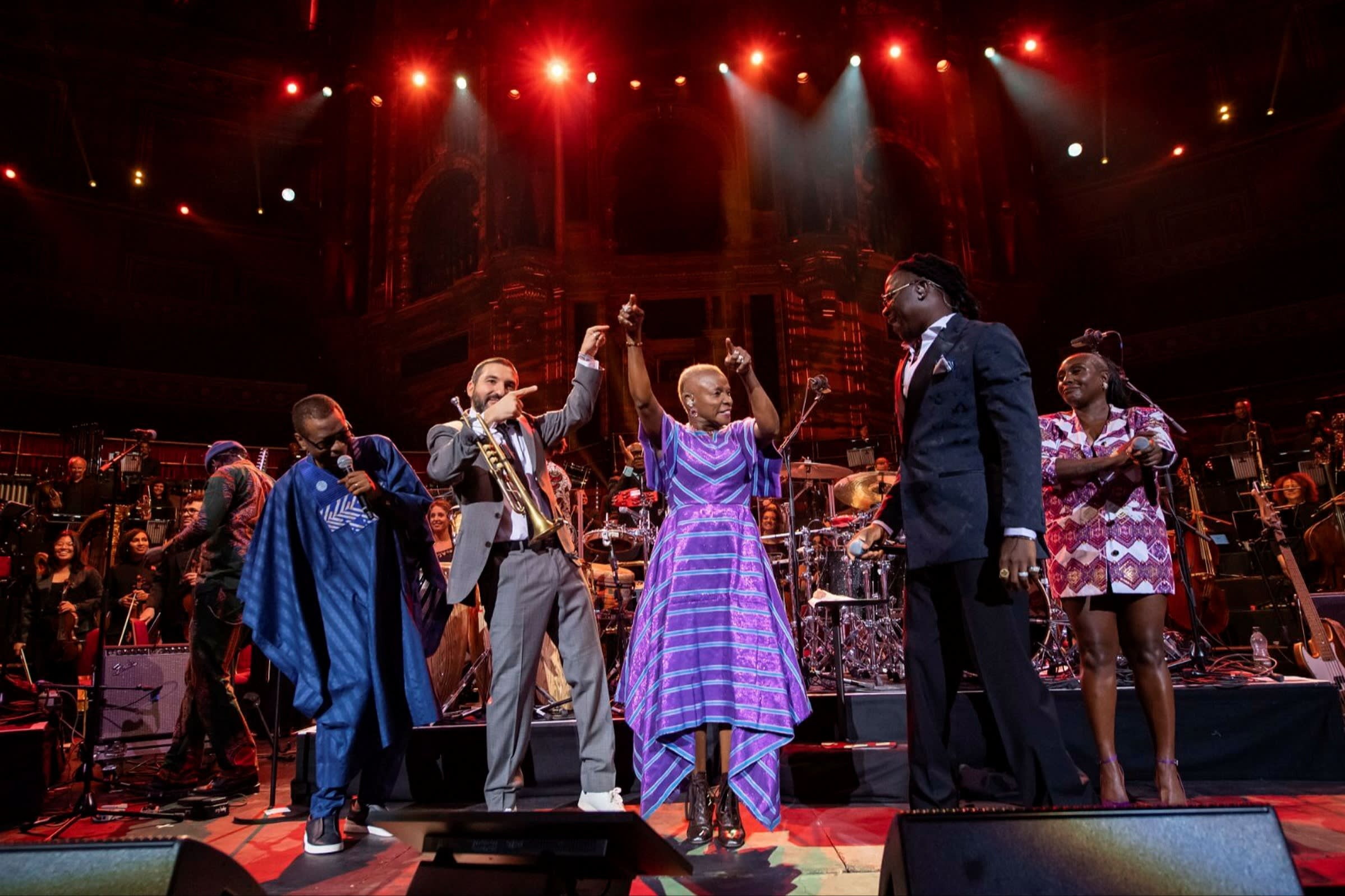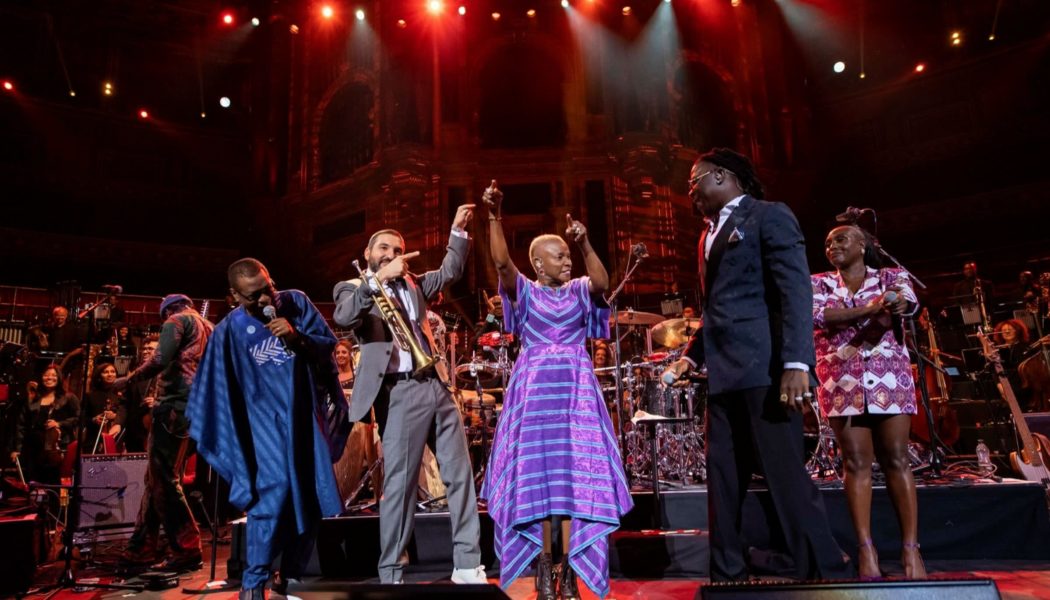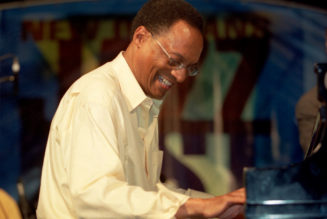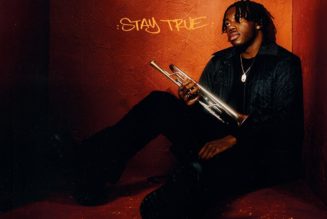Unlock the Editor’s Digest for free
Roula Khalaf, Editor of the FT, selects her favourite stories in this weekly newsletter.
As Angélique Kidjo strode elegantly on to the stage at London’s Royal Albert Hall in a floor-skimming, gold-sequinned gown and African head wrap, she looked every inch the diva. “You thought you were coming to a concert,” she told the packed audience, “but you’re going to be working.”
The Benin-born, five-times Grammy-winning star, nicknamed “the Queen of African music”, urged the audience to sing along. It seemed she might have had her work cut out. The mix of Fair-Isle-sweater-and-slacks types, who looked like they might have been at the first Womad Festival in 1982, younger hipsters and a west African contingent in fabulous frills and elaborate prints, appeared too well-behaved for anything as lively as audience participation.
But Kidjo is not a woman to be put off. Exuding magnetic stage presence and charisma, her voice soared majestically through the infectious and rousing rhythms of 2010’s “Kelele”, complete with playful pizzicato strings courtesy of the Chineke! Orchestra, Europe’s first majority black and ethnically diverse ensemble. Soon she was moving on to her lyrical version of Santana’s “Samba Pa Ti”, with its flirtatious flutes and words in Yoruba.
A headline date in the EFG London Jazz Festival, this was also the first night of a world tour celebrating 40 years of Kidjo’s remarkable career in music, which has gone in tandem with her prolific activism. She is not only a Unicef ambassador and creator of the Batonga Foundation, which helps disadvantaged girls and women in Africa, but is also French president Emmanuel Macron’s spokesperson for AFAWA (Affirmative Finance Action for Women in Africa), an initiative designed to help close the financing gap for female entrepreneurs in the continent.
Fittingly, Kidjo’s songs were interspersed with impassioned words on everything from the importance of education to the need to fight for justice — for women, the people of Africa and victims of oppression of all backgrounds. But there was nothing po-faced about her rhetoric. Before “Ominira”, which she explained means “freedom”, she suddenly stopped, realising she had inadvertently omitted a song on her setlist. “I’m such a passionate person of freedom,” she said, “I can skip the order!”
By the time we reached the interval, via a lush, French chanson-style cover of Sidney Bechet’s “Petite Fleur” and the syncopated west African rhythms of “Mama Golo Papa” (Mummy Loves Daddy), pockets of the audience were on their feet and Kidjo was telling us to “get your dancing shoes ready” for the second half.
She was not joking. After the interval, just as Bob Dylan “went electric” in the second half of his 1966 show at the Royal Albert Hall, here the Chineke! Orchestra was replaced by Kidjo’s rivetingly tight band, complete with electric guitar, bass and rock-style drums as well as African congas.

There were guest appearances from Laura Mvula and Ghanaian dancehall’s rising star Soundbwoy, but the scene-stealers were two other duets. French-Lebanese trumpeter Ibrahim Maalouf joined Kidjo for an interpretation of Talking Heads’ “Once in a Lifetime”, playfully sparring with her on improvised horn solos as she shimmied across the stage, while a soulful rendition of Dylan’s “Chimes of Freedom” found her duetting with Senegalese singer Youssou N’Dour.
Finally, a turbocharged solo performance of Miriam Makeba’s jubilant “Pata Pata”, accompanied by both her band and the orchestra was followed by Kidjo’s own stirring and triumphant “Afrika” with all her guests.
There had been moments of poignancy in Kidjo’s acknowledgment of how far the world still needs to go, but by the time it came to her closing encore reprise of “Kelele”, all five tiers of the hall were on their feet, hips swinging, arms in the air in an unequivocally joyous celebration, not just of Kidjo’s career, but of shared humanity.
★★★★★









